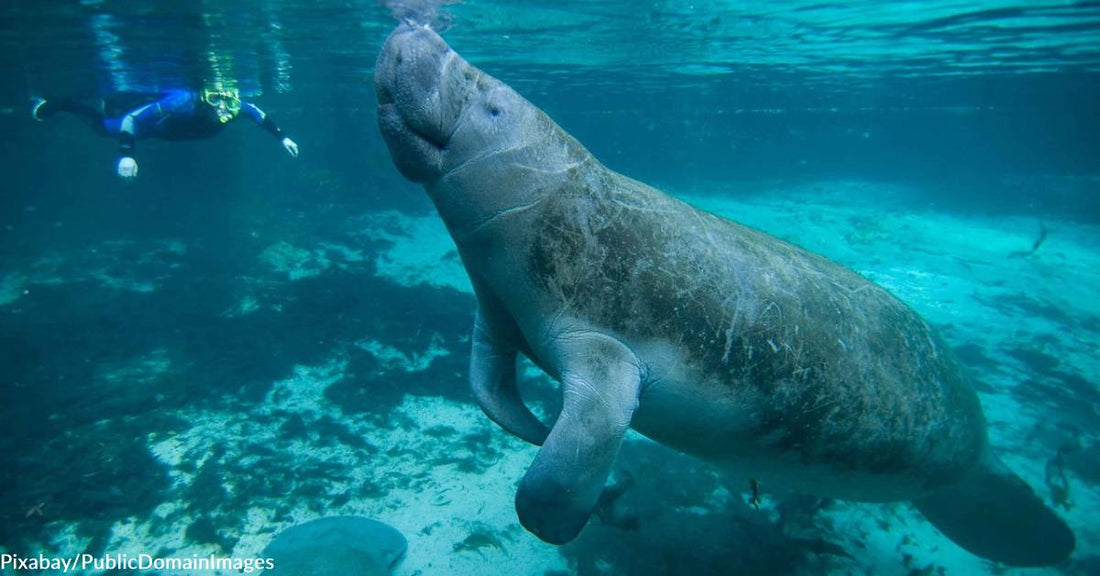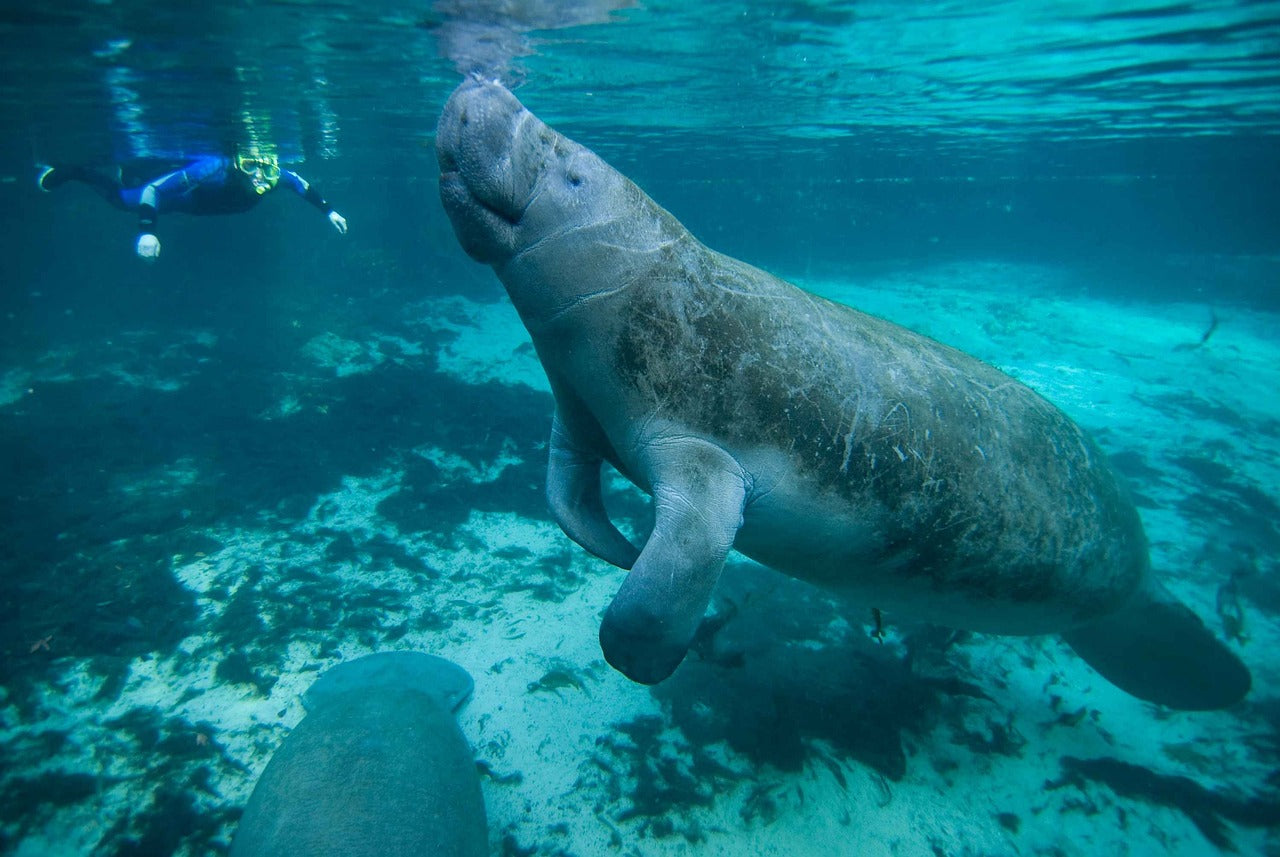Record Number of Manatees Returned to Florida Waters in One Day
Rebecca West
Florida has seen a record number of manatees returned to the wild after suffering from frigid temperatures and impacts to their natural habitats.
Members of the Manatee Rescue and Rehabilitation Partnership released 12 manatees into the waters of Blue Spring State Park, where temperatures are warm enough year-round to support the massive sea cows. Many of them were orphaned calves and/or suffering from malnourishment when they were found over the last three years.
Manatee Rescue and Rehabilitation Partnership
"Over the past several years, we have been called upon to rescue an alarmingly high number of injured, sick, and starving manatees off the Florida coastline," Monica Ross, chairman of the Manatee Rescue and Rehabilitation Partnership and director of manatee research at Clearwater Marine Aquarium Research Institute, said in a statement. "Through the efforts of the MRP partners, I am thrilled that we were able to return the highest number of manatees to their natural environment in a single day."
The manatees spent time at a number of critical care facilities where specialists tended to injuries and made sure the mammals received proper nutrients. They included the Miami Seaquarium, SeaWorld Orlando, the Jacksonville Zoo and Gardens, and the Columbus Zoo and Aquarium in Ohio.
Florida Wildlife
Back in 2020, biologists declared an "Unusual Mortality Event" after high numbers of the marine creatures were discovered dead, with the majority of them found along Florida's east coast. Significant seagrass die-off has caused starvation among the endangered mammals. Data available from the Florida Fish and Wildlife Conservation Commission points to deaths peaking at 1,100 in 2021, but the rate has remained high since then. In 2022, there were about 800 deaths reported.
In January 2023, things were still so bad that members of the Florida Fish and Wildlife Conservation Commission provided the sea cows with lettuce tossed along the edges of canals in hopes of saving as many of them as possible.
"It's just emblematic of how dire the situation is," stated Rachel Silverstein, executive director of the environmental nonprofit Miami Waterkeeper. "The point where we would need to artificially feed a wild animal because their ecosystem is so destroyed that they cannot find food for themselves is pretty extreme."
Track & Release Programs
Before they were released, the rehabilitated manatees were given unique names and fitted with GPS devices to allow biologists the opportunity to track future movements.
"Monitoring will also be critical to the continued understanding of how manatees are adjusting to the fluctuating habitat conditions they need for survival and enable animal care specialists to ensure young animals are learning migration routes and to better treat animals suffering from malnutrition or starvation due to the UME," a partnership spokesperson stated.




